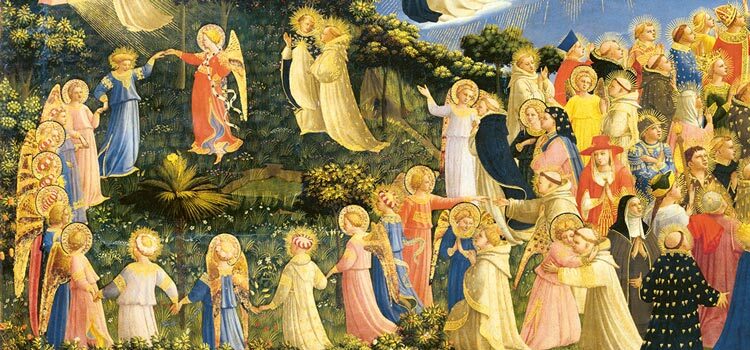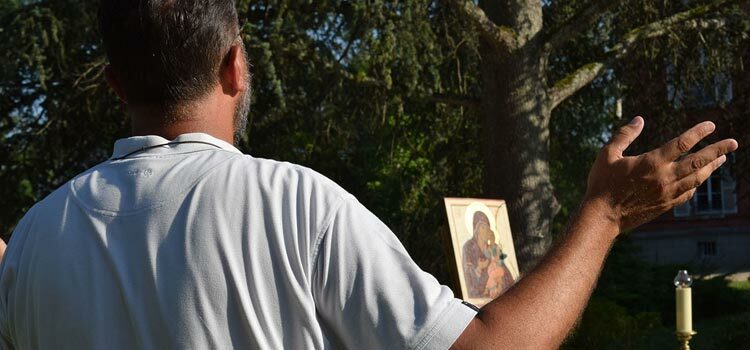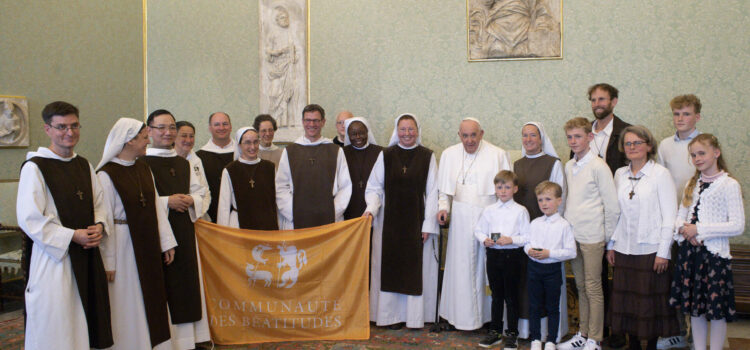The discernment of spirits is an important and rather broad theme in the spiritual life. We shall approach it from an ignatian point of view.
A discovery
Nothing appeared to show that Ignigo’s destiny was to become « Saint Ignatius ». Gentleman and warrior wishing to seduce a lady « above his rank », a soldier, he wages war, he is a born leader and succeeds in convincing the fighters of the Pampeluna citadel he defends, that it is better to die fighting than to surrender. During the attack, he is wounded by a cannon ball which smashes his leg. Convalescent and confined to his bed in his brother’s home, he asks for all the books of the house to be brought to him : some chivalery novels, and then « the Golden Legend, » the Imitation of Jesus-Christ, the Gospel…
To fill his time, he reads, then tired, he closes his eyes and lets his spirit wander in reverie. In his day dreaming he fancies himself involved: – in exploits like those of chivalry ; he loves those dreams that flatter his ego, but leave a bitter taste in him ; – or in exploits mentioned in the life of the saints which leave him with a peaceful and gentle feeling.
From this observation of « the motions of the spirits » will arise the pedagogy of listening to the divine motions which he will write down in the Spiritual Exercises. He observed in particular :
– Consolation, meaning the divine influence which leaves an impression of joy and lasting peace in the soul. This consolation is a deep stream within the soul which produces an « inner spiritual taste »
– Desolation, meaning what the ennemy, the world, or simply the the ego’s restlessness introduces into the soul : a feeling of bitterness and confusion.
Observing “these inner weather conditions,” Ignatius will discover how discernment works, as he describes it in his Book of Spiritual Exercises in the form of rules (no. 314-336).
Living and the re-examinig what we have experiened
The method he suggests is to identify in our prayer, but also in our life, the moments of « consolation » which are the signature of the Holy Spirit. For that, we need to practice having a quizzical eye on what we have exprienced. In fact, it is impossible to experience prayer, mission or commitment, and to discern at the same time. This is why Ignatius will always insist that his Jesuit brothers never give up « rerviewing » their lives (in those days one spoke of examination of conscience).
Consolation ? Desolation ?
This is why he advises to always write down a few words after a prayer or a significant experience, so as to keep tracks of what has been experienced. Over time we see the moments when the soul was burning with the presence of God and the moments when God seemed absent. Thus, in Ignatius’ own words, consolation is characterized by an interior movement to love God, tears that bring back to him, by everything that makes faith, hope and love grow and what soothes and pacifies the soul. Thus, in Ignatius’ own words, consolation is characterized by an interior motion to love God, tears that bring back to him, by everything that makes faith, hope and love grow and what soothes and pacifies the soul. As for desolation, it is more a state when the soul is lazy and lukewarm. It is an experience of darkness, trouble, featured by a motion towards low and selfish things, agitation, temptations and an absence of trust and love.
Then what’s to be done ?
In consolation :
– Remain humble and remember you can fall into desolation in half a second…
– Think of how you wish to behave when desolation enfolds you.
In desolation :
– Remember the moments of consolation and do not forget that God does not allow you to be tested beyond your strength, even if you do not feel it.
Bulletin n°26 – page 3
– Do not make any important decisions, because it would be inspired by your troubled feelings. – Hold firmly on to the decisions you made when you were experiencing consolation. – Give more energy to your spiritual life, so as to fight against the gloomy innner weather conditions that would like to take hold.
Learn to discern
“The enemy of human nature”, whether it be our “flesh” or the angel of darkness, manifests itself in the many temptations, ideas, thoughts, dislikes, but also in desires which seem to come from God but which, surreptitiously, lead us astray. Ignatius knew this very well in his retreat in Manrese, when he started to change his life. Armed with this experience, he writes in the Spiritual Exercises that “the evil angel disguises himself as an angel of light” producing consolation in the soul with the intention of leading it astray. Everyone of us could find quite characteristic examples of this temptation in our life. It all starts with a powerful zeal for God and ends in desolation, sin and disunity …
In order to counter this trick of the ennemy, Ignatius suggests an exact investigation of our thoughts : before, during and immediately after the consolation. The idea is to look for the moment the bad spirit bends a good action towards evil and selfishness. As an example, I can be greatly comforted in participating in the « prayer of the brothers » and even more so because there was a beautiful « anointing », and, during this prayer, experience a feeling of « power » inside me. Then, some days later, I might feel disgusted with my simple life of work and orison, and tell myself that I am made for another more intense kind of life … Letting, at that moment, bitterness creep in. It is here that scrutinizing ones thoughts becomes absolutely necessary.
On the whole, to discern is cultivating a sensitiveness of the heart, on one hand to the spirit of the Gospel and clinging to it, and on the other to the spirit of perdition in order to outwit his tricks. Far from being an intellectual exercise, the aim is to develop a quality of awareness to accept what is coming from God and refuse what hinders Him.
Quotation
« It isn’t knowing-many things which satisfies the soul, but feeling and testing things inwardly. »
Saint Ignatius
To go further…
Books:
|
Find the previous articles in our “Life of prayer” series.
(publication edited by brothers and sisters of the Community of the Beatitudes – © rights reserved).






